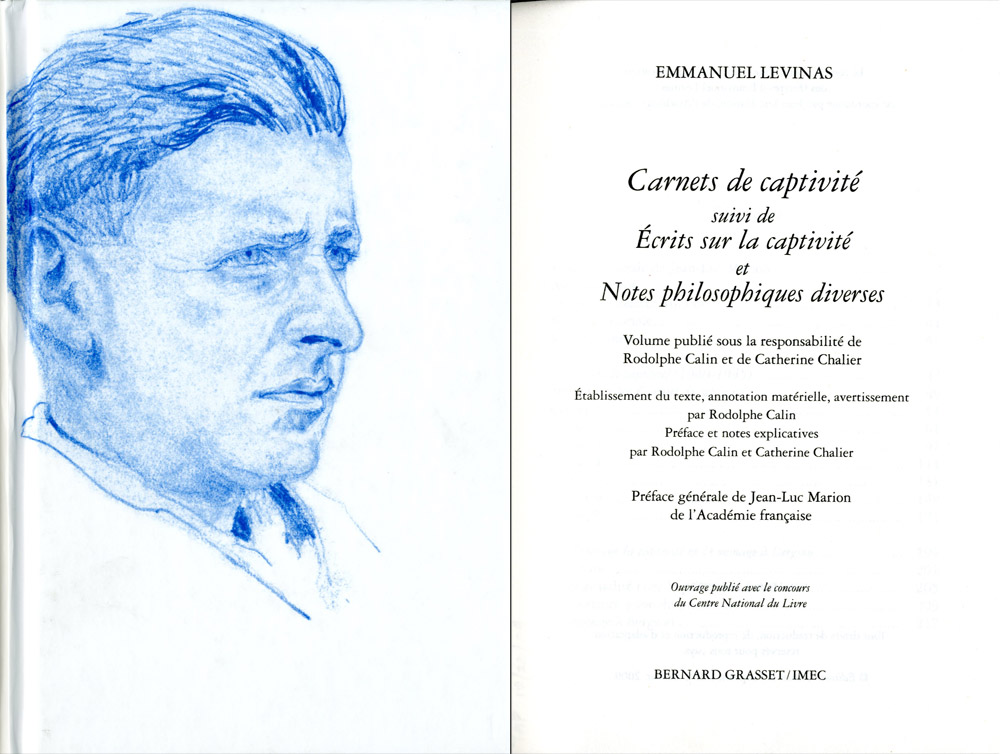This is the first in a series of three volumes intended to make available Levinas's unpublished writings. As its title indicates, the bulk of its contents are the notes Levinas kept while a prisoner in a German forced labor camp from 1940-1945. He was captured as a soldier in the French army and, since the Germans abided by the Geneva conventions with those countries that were signatories, he was not sent to a death camp. The Jewish soldiers were separated from the rest of the French prisoners but suffered more or less the same harsh treatment as they did. As he was often to put it, the French uniform saved his life.
It is clear from the content of this book that he had access to a library and to at least some paper and writing implements while incarcerated. Although he worked cutting wood from morning until night, he still had some moments of leisure. The notes we find here are often very short, a sentence, a paragraph, quotations copied whole from whatever he was reading. Very little of it is about the daily life in the camp. His thoughts seem either to grapple with long standing philosophical questions or with literary topoi. This is not to say they had nothing to do with the war experience but their connection to it is not made explicit in most cases.
The excellent scholarly introduction to this volume, by Rodolphe Colin and Catherine Chalier, provides guidance into the central themes. In many respects,though, Levinas's own jottings are useful primarily to people who are already familiar with his thought. It is surprising to notice both ideas and language that occur much later in his work. It is also surprising to see the extent of his literary interest, and, sometimes, in figures one would not think would draw his attention, like the Catholic writers Leon Bloy and Georges Benanos, whose work expressed a peculiar and highly suspect attitude toward Jews, which Levinas ignores in favor of some other aspect of their thought. It is also highly instructive to see how Levinas addresses Judaism in the period before he was introduced to Talmudic studies.
The sections following the war writings proper (as a matter of fact, the jottings date from before the war—1937—and conclude after the war—1950.) are more of a piece. The first is a series of short essays that he wrote in 1945-1946, describing the Jewish experience of captivity, meant for a Jewish audience, with the addition of a short reflection about the philosopher Bergson's death. The last section consists of philosophical musings of greater breadth, some of which are a rough draft for what will be his first philosophical publication after the war, De l'existence a l'existant (1947).
Since much of what appears in this volume had been originally handwritten on bad quality paper, and in pencil to boot, and preserved for an average of sixty-five years, the editors had to fill in some letters and hunt down many references. Their scholarly reconstruction is indicated both in footnotes marking the changes they introduce to the text and in endnotes in which the bibliographical and historical material they unearthed is made available.
